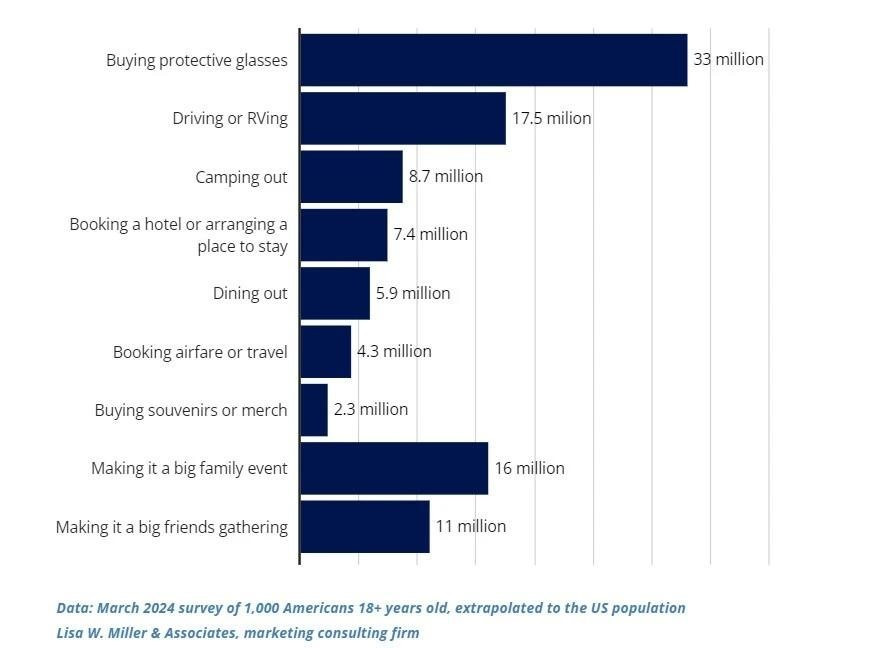Rare Total Solar Eclipse in 45 Years Expected to Generate $6 Billion Boost to US Economy
The upcoming rare total solar eclipse, set to occur on April 8th, is generating significant excitement across North America. This natural phenomenon has not been witnessed in this region for 45 years, making it a highly anticipated event. The economic impact of this celestial event is estimated to be a staggering $6 billion, benefiting various sectors and businesses.
Unprecedented Interest and Tourism
Anticipated to attract around 4 million Americans, the total solar eclipse is set to be a grand spectacle. Unlike previous occurrences, this year’s eclipse will be visible over a vast area, making it easily accessible to a larger portion of the population. Furthermore, the duration of this eclipse is expected to last for an impressive 4 minutes and 20 seconds.
Steve Wright, CEO of Jay Peak Resort in Vermont, first learned about the total solar eclipse four years ago when a guest reserved a room for the event. Reflecting on the excitement surrounding the occasion, Wright shared, “I have never seen such enthusiasm from visitors before a solar eclipse.”
The resort has experienced extraordinary demand, with 900 fully booked rooms on April 7th and 800 rooms reserved for April 8th, 10 times more than the previous year. Prices per night average around $500.
Unique Experiences and Economic Opportunities
In addition to the surge in tourism, some couples have even chosen to tie the knot during the eclipse, with one couple inviting the iconic band Pink Floyd to perform their hit song “The Dark Side of the Moon.” This extraordinary event not only provides an unforgettable experience for attendees but also generates additional economic opportunities.
The total solar eclipse is set to benefit numerous states, stretching from Texas to Vermont. According to economic analysis firm Perryman Group, the eclipse has the potential to contribute $6 billion to the US economy through spending on hotels, restaurants, and tourism.
Ray Perryman, economist and CEO of Perryman Group, explained, “It’s a fact that we won’t have an eclipse like this for many years.” NASA predicts that the next total solar eclipse visible in the US will not occur until 2045. Dan Schneiderman, coordinator of eclipse-related activities at the Rochester Museum of Science, described the event as not only a scientific phenomenon but also an emotionally charged experience.
Economic Boost for Texas and Vermont
Texas is expected to reap the largest economic benefits, estimated at $1.4 billion. The state’s large population and major cities such as Austin and Dallas provide favorable conditions for observing the eclipse. Vermont, on the other hand, forecasts attracting up to 200,000 visitors, resulting in an economic boost of around $230 million. This figure is significant for a state with an annual GDP of approximately $43 billion.

Caption: Economic benefits from services related to the total solar eclipse on April 8th. Source: Fox Weather
Moreover, various services related to the eclipse have experienced a surge in demand, including the sale of protective eyewear, camping equipment, souvenirs, event organization, and even flight ticket purchases.
In conclusion, the rare total solar eclipse expected to occur on April 8th will not only provide a mesmerizing celestial display but also deliver a tremendous boost to the US economy. With its long-awaited arrival, this unique event showcases the power and allure of both science and emotions. For more information on finance and economics, visit Business Today.
